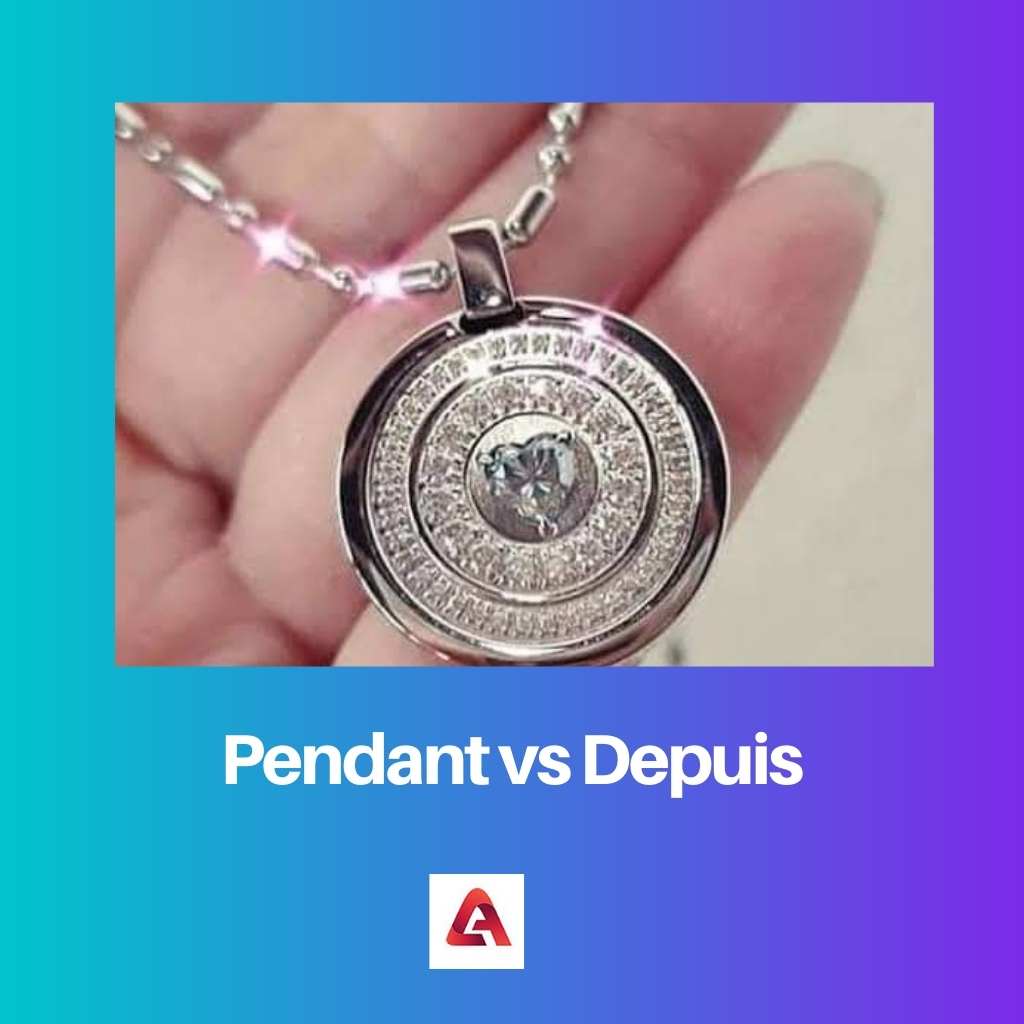French prepositions such as pendant and depuis are used to describe the duration of a particular event or action. Pendant and depuis are also popularly known as temporal expressions.
Both these terms have a very specific meaning yet English speakers get confused between the two terms.
Key Takeaways
- Pendant is a French preposition that indicates a specific time duration, while depuis indicates a starting point.
- Pendant is equivalent to the English preposition “during”, while depuis translates to “since” or “for”.
- Both pendant and depuis are used in French to express time-related concepts, but their usage differs based on the context.
Pendant vs Depuis
Pendant and depuis are both French words that indicate a duration of time, but they differ in their usage. Pendant is used to indicate a specific duration of time. ‘Depuis’ is used to indicate the start of a duration of time and is translated as “since” in English.

Pendant in French is used to express the term during. It is a preposition of time. Pendant describes an event that has already taken place or is about to take place.
The activity in reference to the pendant is being used should have no connection with any present or ongoing activity.
Depuis in French is used to express the term since. It is also a preposition of time. It is a French verb that is used to state an event that has started in the past and is still taking place.
Depuis is suitable for relating to activities taking place in present perfect or present perfect progressive.
Comparison Table
| Parameter of Comparison | Pendant | Depuis |
|---|---|---|
| Translation | During | Since |
| Use | Describe past or future actions | Describe actions that started in the past and is still happening |
| Tense | Past or future | Present |
| Rule 1 | Used during conversing about a particular activity that has a specific start and end | Used while conversing about an activity which has been committed in the past and also present |
| Rule 2 | It has only one rule | Used while conversing about an activity that had been started but was stopped by a different set of action |
What is Pendant?
Pendant the French preposition is used as a preposition of time. It translates to the English phrase during. The pendant can also be used in the meaning of the English term for.
In this particular manner, it is additionally the synonym for the French term Durant which means during.
Pendant describes past and future activities. It describes how long an activity has lasted or how long it is going to last. Pendant is used while conversing about activities that have happened during a particular period in the past or future.
Pendant has one specific rule which states pendant can only be used while conversing about a particular activity that has a specific beginning and end to it.
One uses pendant while conversing in place of for in past and future tense. The entire time frame of the activity should have no connection with any present or ongoing activity.

What is Depuis?
Depuis is a French preposition used as a preposition of time. It translates to the English phrase since. Depuis is used as a French verb that states the present tense.
It is used when an activity has started in the past and is still taking place. Therefore in French countries, it is noticed that the term depuis is added before a year when the business was started.
In English grammar, it is suitable for relating to activities taking place in present perfect or present perfect progressive. Depuis also describes an activity that had been started in the past but was stopped by a different set of actions.
In the French language, it is expressed with the term imparfait.
Depuis has two very specific rules which are to be followed. Depuis can only be used while conversing about an activity that has started in the past but and is still taking place.
And, depuis can also be used while conversing about an activity which had been started in the past but was stopped by a different set of actions.
Main Differences Between Pendant and Depuis
- The immediate translation of the word pendant is during whereas the translation of the word depuis means since.
- The French preposition pendant is used about past of future activities whereas the preposition Depuis is used in reference to present or ongoing activities.
- Pendant refers to the entire time frame of activity in the past or future, with no connection to the present or any ongoing activity. Depuis refers to an activity that has started in the past and is still taking place.
- Pendant is only used while conversing about a particular activity that has a specific beginning and end to it whereas; Depuis is used while conversing about an activity that has been committed in the past and the present.
- Pendant has only one specific rule on where it can be used however in the case of Depuis it has another rule which states that Depuis can also be used while conversing about an activity that had been started in the past but was stopped by a different set of event.
- https://www.ingentaconnect.com/content/jbp/sl/2007/00000031/00000001/art00001
- https://books.google.com/books?hl=en&lr=&id=OUFAAAAAQBAJ&oi=fnd&pg=PA49&dq=french+preposition&ots=zgx0b_XHlE&sig=SDAjaE1-fafxKUiSPLh5whz_TGM
